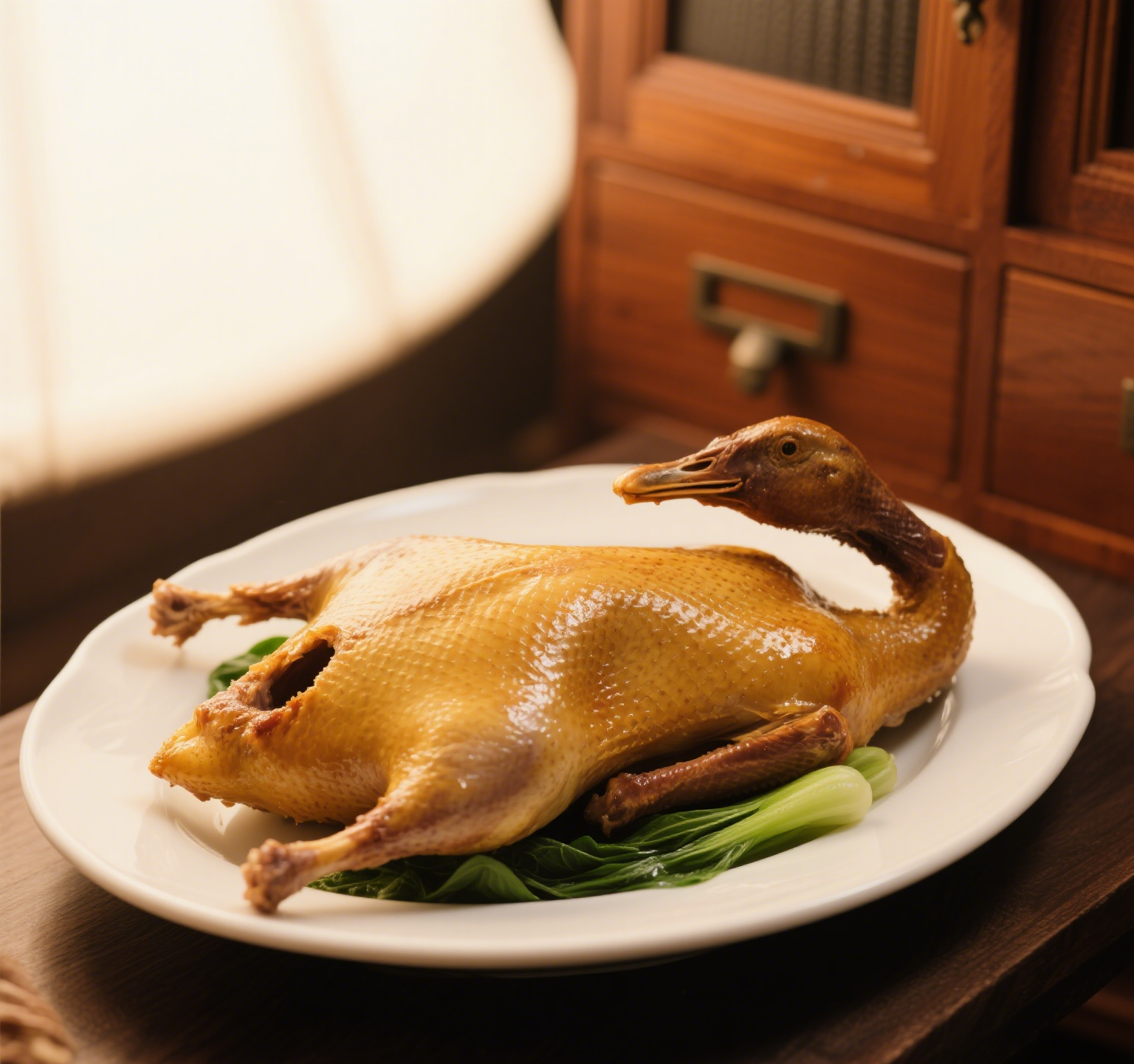Physical Address
304 North Cardinal St.
Dorchester Center, MA 02124
Physical Address
304 North Cardinal St.
Dorchester Center, MA 02124
The Secret Life of the World’s Most Delicious Bird
Let’s cut to the chase: Duck is the James Bond of poultry. It’s suave, rich, and always leaves you wanting more. While chicken is the reliable neighbor who mows your lawn, duck waltzes in wearing a tuxedo of crispy skin and whispers, “Darling, let’s make dinner unforgettable.” But why does duck taste so absurdly good? Is it magic? A conspiracy by French chefs? Let’s waddle into the science, history, and sheer deliciousness of this culinary superstar.

First, let’s talk biology. Ducks are built different. Unlike their landlubber cousins (looking at you, chickens), ducks are aquatic birds with a layer of subcutaneous fat that’s thicker than a mystery novel. This fat isn’t just for floating—it’s flavor gold. When cooked, it renders into liquid luxury, basting the meat from the inside out.
But fat isn’t the only MVP. Duck meat is darker and richer than chicken because ducks actually use their muscles. Flying (or attempting to) and swimming mean their muscles store more myoglobin, the protein that gives meat its deep color and robust flavor. As one chef famously declared, “Duck doesn’t taste like chicken—it tastes like victory.”
Let’s be real: Duck’s crispy skin is the Beyoncé of the culinary world—it steals the show every time. The secret? That glorious fat layer melts slowly when roasted, leaving behind a crackling, golden crust. Pro tip: Score the skin, render the fat patiently, and you’ll unlock what foodies call “the crunch heard ’round the world.”
And don’t toss that rendered duck fat! Save it for frying potatoes or sautéing veggies. As Julia Child once joked, “With enough duck fat, even cardboard tastes gourmet.”
Duck packs a umami punch that chicken can only dream of. Thanks to its higher levels of glutamates (natural flavor compounds), duck tastes savory, complex, and downright addictive. Whether it’s Peking duck glazed with hoisin or a French magret de canard with red wine sauce, duck plays well with bold flavors.
Fun fact: Duck’s umami is why it pairs so well with sweet and tangy sauces. The combination triggers a taste bud fiesta—like a flavor fireworks show sponsored by your mouth.
Duck isn’t just tasty; it’s traveled the world collecting Michelin stars and fan clubs. Let’s tour its greatest hits:
Even modern chefs can’t resist reinventing it. Ever tried duck tacos? Duck ramen? Duck dessert? (Yes, duck fat caramel is a thing, and it’s life-changing.)
As food historian Dr. Henrietta Quackenbush notes, “Duck is the original influencer—every culture wants a collab.”
Imagine chicken as a light beer and duck as a barrel-aged bourbon. Both have their place, but duck brings depth and drama. Here’s why:
But be warned: Duck’s richness means a little goes a long way. As my grandma used to say, “Duck is like a good perfume—too much and you’ll overwhelm the room.”
Many home cooks avoid duck because it feels intimidating. Newsflash: Duck is just a bird with attitude. Here’s how to tame it:
And remember, mistakes are just “rustic charm.” Burnt a pan sauce? Call it “smoky reduction.” Overcooked the meat? “Deconstructed duck hash.” You’re welcome.
Yes, duck is pricier than chicken, but here’s why: Ducks take longer to raise, require more space, and yield less meat. However, their flavor-to-portion ratio means one duck can feed a family in style. Plus, as sustainability guru Chef Marco Flavio argues, “A well-cooked duck honors the animal far more than wasting a bland chicken.”
So why is duck so tasty? It’s a perfect storm of biology, fat, umami, and centuries of culinary mischief. It’s the bird that refuses to be boring, the ingredient that turns Tuesday dinner into a celebration. Whether you’re roasting it whole, shredding it into pasta, or rendering its fat for roasted veggies, duck delivers a flavor adventure that chicken can’t match.
To quote a wise line cook: “Life’s too short to eat bland food. Be the duck in a world of pigeons.” Now go forth, grab those tongs, and let your taste buds waddle into the delicious unknown.